Understanding the Emotional Barriers in Recovery
Shame and guilt are powerful emotions that often accompany addiction, shaping the recovery journey in complex ways. While guilt can motivate making amends and healing, shame tends to foster a destructive cycle of avoidance and secrecy. Understanding these emotions and their distinct impacts on recovery is crucial for overcoming them. This article explores strategies for managing feelings of shame effectively, offering guidance for those seeking to navigate the emotional challenges on the path to recovery.
Understanding Shame and Guilt in Recovery
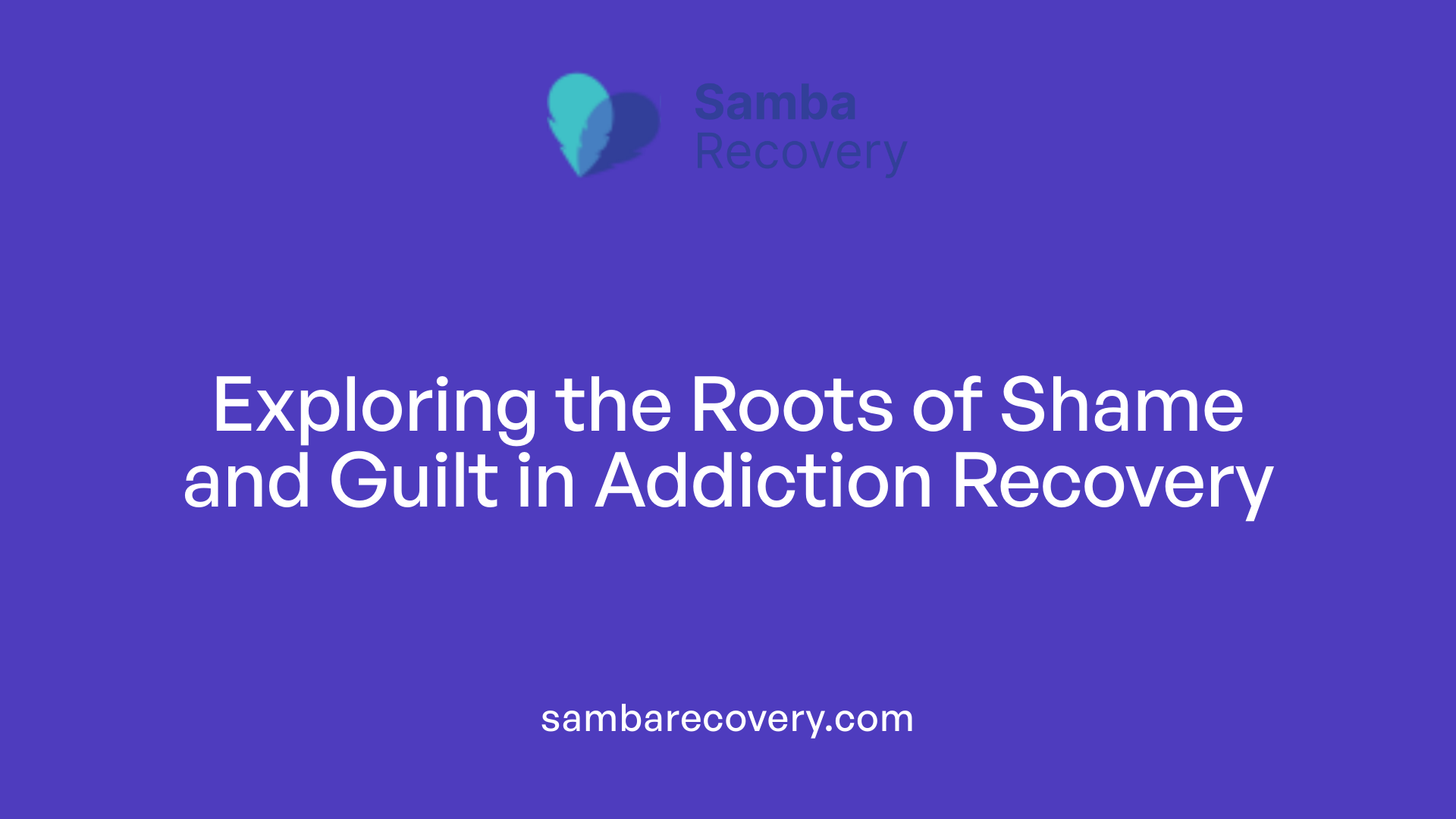
What is the difference between guilt and shame in addiction?
Guilt and shame are emotional responses that impact individuals struggling with addiction in different ways. Guilt tends to motivate a person to correct their behavior and make amends, leading to positive actions in recovery. It is connected to specific behaviors and creates awareness of actions taken against personal values. On the other hand, shame often leads to avoidance and can reinforce addictive behavior by fostering feelings of hopelessness. It involves a negative self-perception and can make recovery more challenging.
Impact on the recovery process
The presence of guilt and shame can significantly affect the recovery journey. While guilt can serve as a cue for individuals to acknowledge their past behaviors and prompt change, excessive guilt can become paralyzing and hinder progress. Shame, characterized by feelings of unworthiness, is particularly damaging. It can prevent individuals from seeking help, as they feel undeserving of support, ultimately making the path to recovery more difficult. Additionally, these emotions can lead to negative coping mechanisms, where individuals revert to substance use as a way to escape their feelings.
Potential benefits of understanding these emotions
Acknowledging and understanding guilt and shame can yield several benefits in the recovery process. Individuals who embrace self-forgiveness and compassion can redefine their self-image, breaking free from the cycle of self-blame. Engaging in open discussions about these feelings can foster connections with supportive communities, enabling individuals to share their experiences. Developing self-awareness and emotional intelligence allows for effective management of these emotions, which is crucial in promoting resilience and sustained recovery. Practicing techniques like mindfulness can also mitigate the emotional burden, helping individuals to live in the present rather than being weighed down by past actions.
First Steps to Overcoming Shame
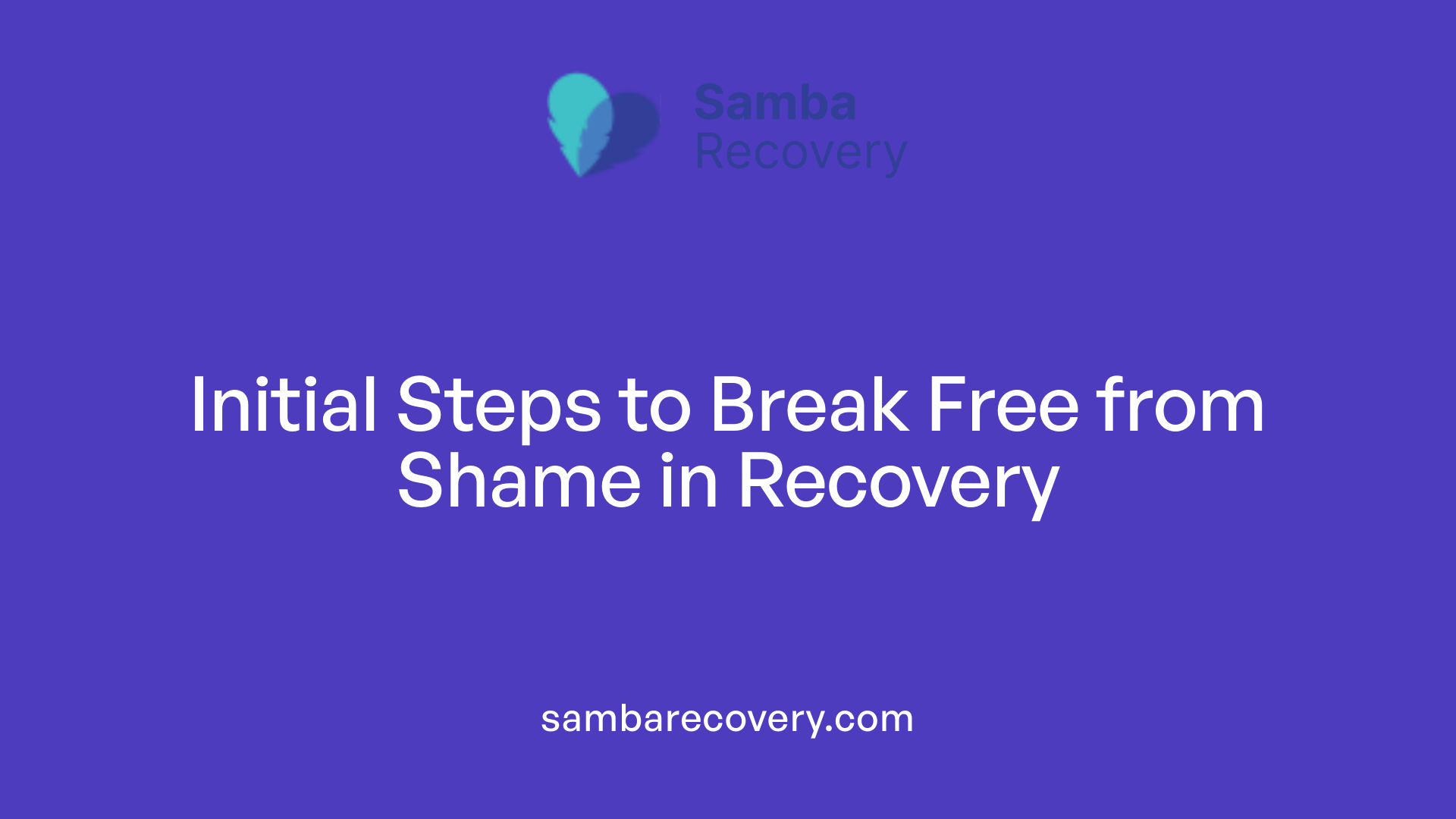
What is the first step towards overcoming feelings of shame in addiction recovery?
The first step towards overcoming feelings of shame in addiction recovery is acknowledging and accepting those feelings without judgment. This involves openly recognizing that shame can often stem from a fear of being unworthy or unloved. It’s essential for individuals to engage in self-reflection to understand the roots of their shame, allowing them to confront it directly.
Practicing self-forgiveness
Practicing self-forgiveness plays a vital role in the recovery journey. It allows individuals to let go of guilt associated with past actions, fostering a healthier, more constructive mindset. Accepting past mistakes and showing oneself grace can enable growth and facilitate healing. Self-forgiveness doesn’t mean excusing harmful behaviors, but rather understanding them and committing to change.
Importance of self-compassion
Cultivating self-compassion is another key aspect of overcoming shame. This means treating oneself with kindness and respect, which helps counteract self-critical thoughts. By developing a supportive internal dialogue, individuals can shift focus from negative feelings to a more positive self-view. Embracing vulnerability and sharing personal experiences with trusted individuals can create connections that alleviate feelings of isolation related to shame.
A Summary of Effective Steps
| Step | Description | Impact on Recovery |
|---|---|---|
| Acknowledge feelings | Recognizing shame without judgment | Reduces feelings of isolation |
| Self-forgiveness | Letting go of guilt and embracing mistakes | Fosters growth and commitment to change |
| Cultivate self-compassion | Treating oneself kindly | Enhances self-worth and positivity |
Acknowledging shame, practicing self-forgiveness, and nurturing self-compassion are important first steps for individuals in recovery to diminish the grasp of shame on their lives.
Practical Strategies for Healing Shame
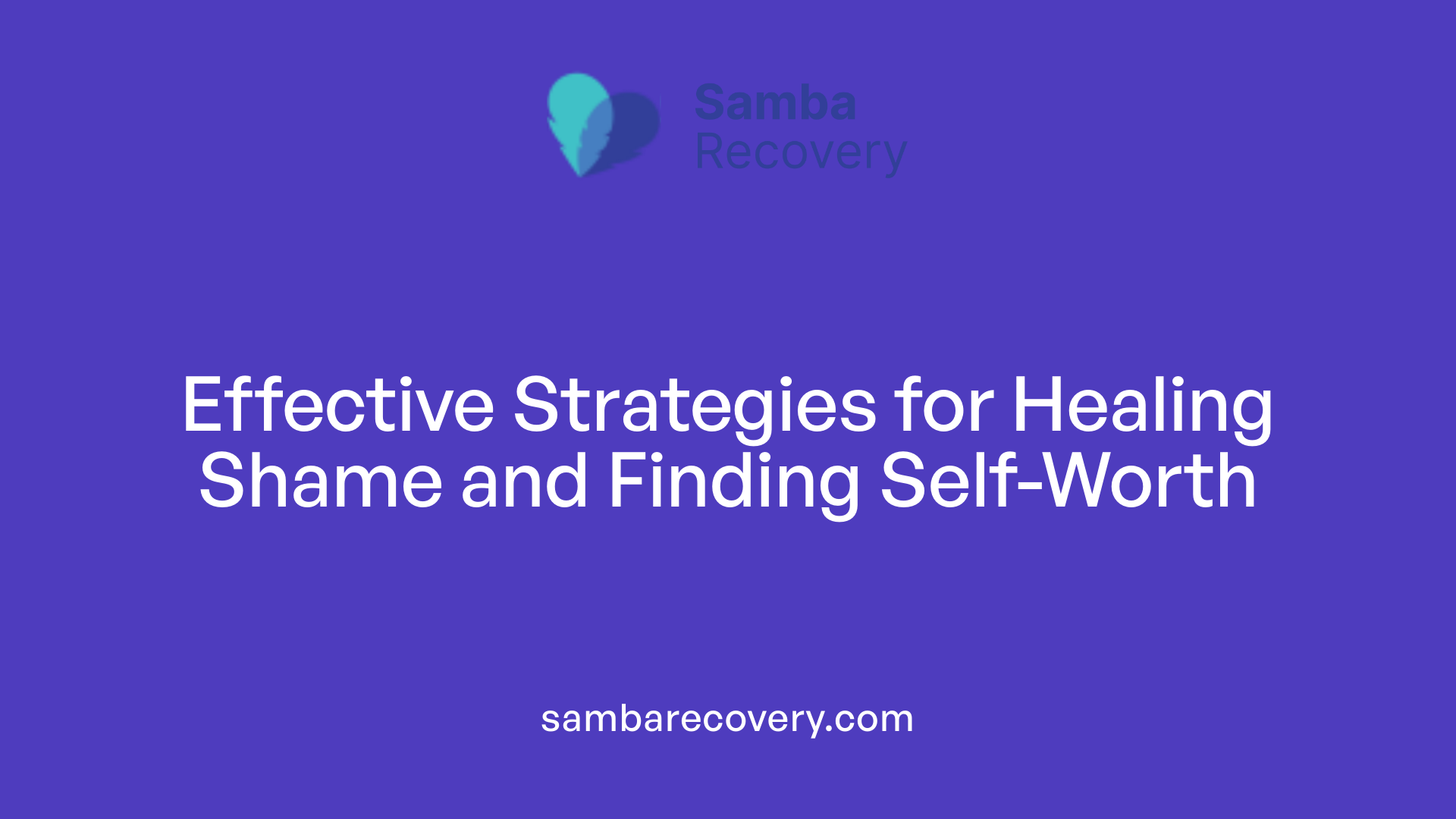
What strategies can help heal feelings of shame?
Healing from shame is crucial for personal growth, especially for those in recovery. The journey begins with accepting responsibility for past mistakes. This acknowledgment is not about wallowing in guilt, but rather about taking the first step toward self-forgiveness. By recognizing and owning one’s actions, individuals can pave the way for deeper healing.
Engaging in conversations with trusted individuals is beneficial. Sharing your feelings provides both support and perspective. This can be a family member, a friend, or a therapist who can help you work through feelings of shame.
Finding healthy emotional outlets is another vital strategy. Activities such as creative expressions or physical exercise can help process and alleviate feelings of shame, allowing for emotional release in a constructive way.
Additionally, it’s essential to work on self-talk. Promoting a more positive internal dialogue can shift your self-perception away from being defined by past actions. This reinforces personal value and strengthens the resolve to move forward in recovery.
It’s also important to recognize the differences between guilt and shame. While guilt can motivate positive change by indicating wrong actions, shame often creates barriers that hinder personal growth. Understanding this distinction helps in navigating the complex emotions associated with recovery.
Support systems and positive self-talk
Surrounding yourself with a supportive community is invaluable. Building relationships with individuals who uplift and encourage can significantly impact recovery outcomes. Whether through family, friends, or support groups, being part of a positive environment fosters feelings of self-worth and diminishes shame.
Moreover, practicing positive self-talk helps combat the negative narratives often associated with shame. Instead of harsh self-criticism, individuals should encourage themselves with affirming statements, enhancing self-compassion and resilience.
Therapeutic interventions
Engaging in therapeutic interventions can play a pivotal role in addressing shame. Therapy, such as Cognitive Behavioral Therapy (CBT), can help individuals challenge and reshape negative thought patterns. Therapists guide clients in developing healthier self-perceptions, providing tools to confront and transform feelings of shame.
Incorporating group therapy also offers a space where shared experiences foster mutual understanding and support. This collective healing helps in diminishing isolation, a common struggle for those dealing with shame.
By employing these strategies, individuals can embark on a path toward healing, finding empowerment and hope in their recovery journey.
The Impact of the Shame Cycle on Recovery Journeys
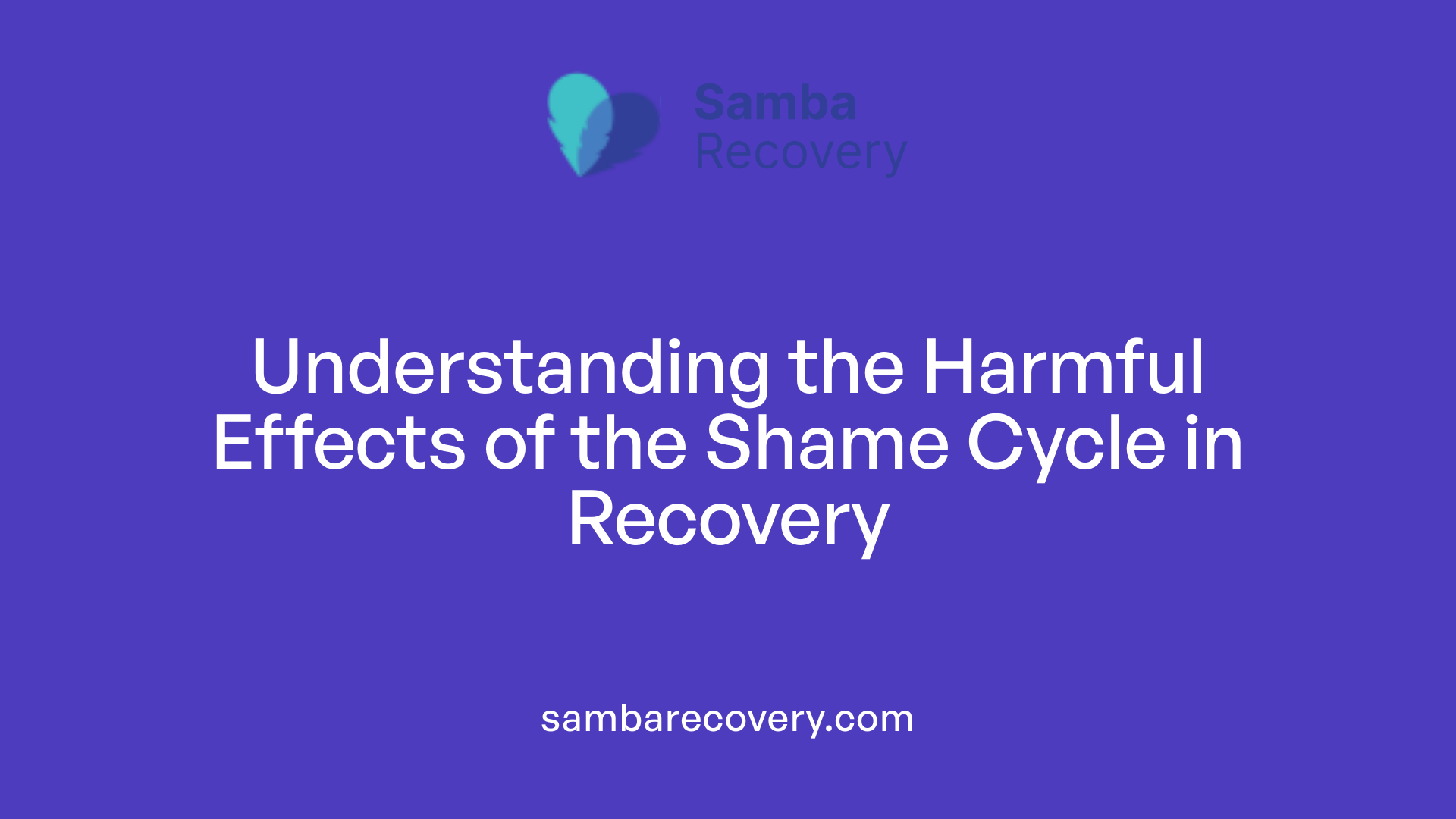
How does the shame cycle impact addiction recovery?
The shame cycle significantly impacts addiction recovery by creating a vicious cycle where feelings of shame lead to substance use, serving as a means of escape. This dynamic perpetuates the cycle, further igniting feelings of shame. Research findings indicate that individuals with higher levels of shame experience slower decreases in stimulant use, as they may engage in avoidance behaviors instead of seeking the help they need. This reaction highlights the different roles of shame and guilt in recovery; while guilt can inspire reparative actions, shame often undermines self-worth, leading to self-sabotage instead of recovery.
Furthermore, shame acts as a barrier to reducing substance use, reinforcing the need for targeted interventions in treatment programs.
Research findings on shame in recovery
Studies show that individuals grappling with addiction often report significant levels of shame associated with their past actions. This chronic shame can hinder their recovery journey, leading to feelings of unworthiness and decreasing the likelihood of seeking help. It’s important to note that feeling guilty about past behaviors can motivate individuals to change, whereas shame tends to reinforce a negative self-perception, complicating the healing process.
Interventions like Motivational Interviewing
Interventions such as Motivational Interviewing (MI) are effective in addressing the challenges posed by shame in recovery. MI fosters a supportive environment, empowering individuals to confront their feelings of shame while acknowledging their desire for change. By helping clients explore their feelings and motivations, MI can help shift focus away from shame and towards constructive actions. This process ultimately enhances the recovery journey, allowing individuals to build resilience and a healthier self-image.
Building a Supportive Network for Recovery
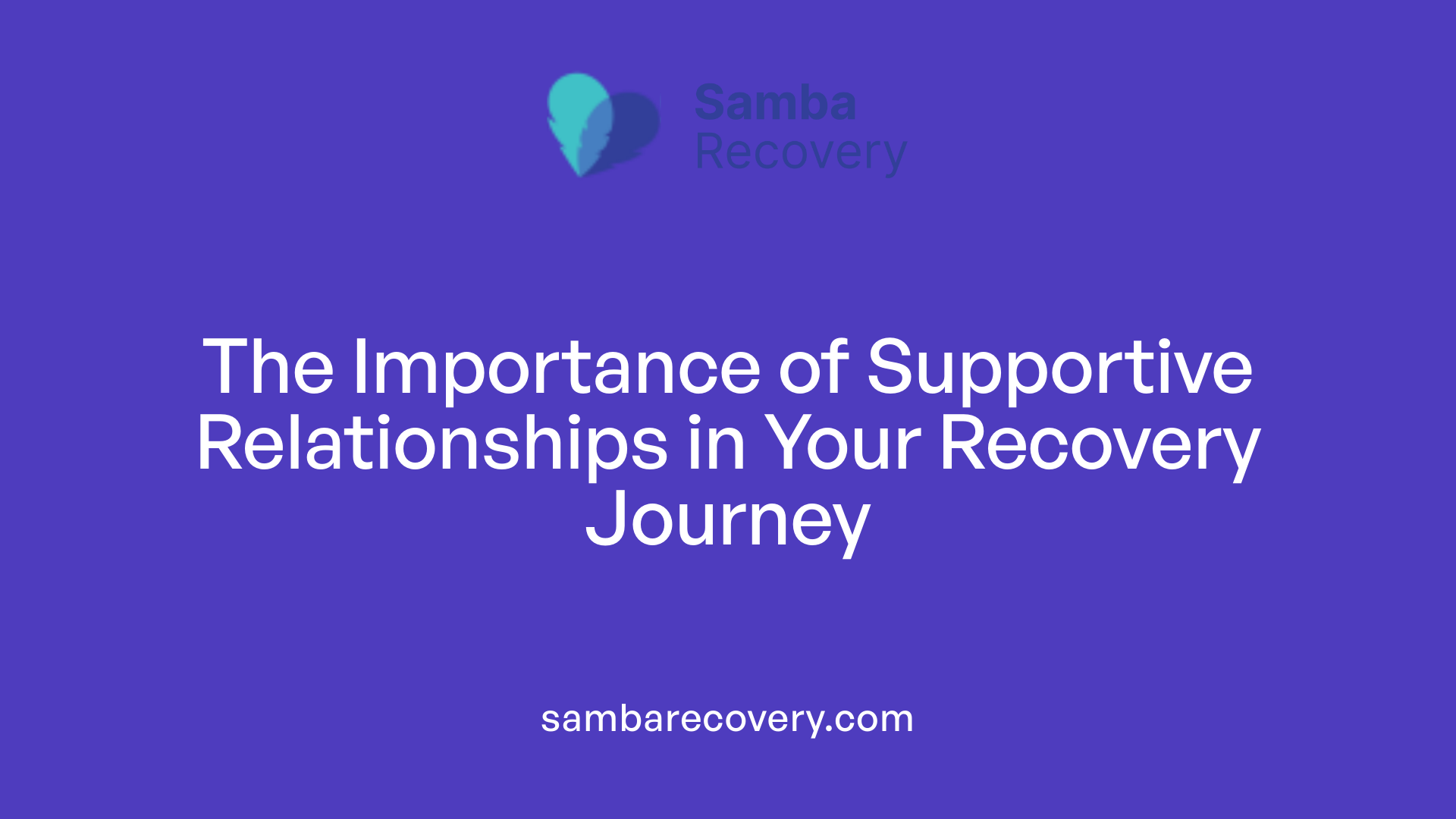
Importance of Positive Relationships
Having positive relationships is crucial for those in recovery from addiction. Surrounding oneself with supportive individuals can significantly enhance emotional well-being and bolsters motivation to stay sober. These individuals provide encouragement, understanding, and empathy, which are vital in combating feelings of shame and guilt.
Role of Family and Community
Family members can play an essential role in recovery by creating a safe environment where individuals feel supported in facing their past actions and guilt. This nurturing context fosters openness and honesty, allowing for healing discussions that can be therapeutically beneficial.
Benefits of Group Therapy
Engaging in group therapy is another effective way to build a support network. It allows individuals to share their experiences, reducing feelings of isolation and shame. Through mutual support, participants can learn coping strategies from one another, building resilience in their recovery journeys.
| Type | Benefits |
|---|---|
| Positive Relationships | Enhance emotional stability, reduce feelings of shame, promote accountability |
| Family Support | Create a nurturing environment, foster communication and healing |
| Group Therapy | Build community, learn coping strategies, reduce isolation |
Therapeutic and Mindfulness Practices
Role of therapy in addressing shame
Therapy plays a significant role in confronting feelings of shame and guilt, which are prevalent during addiction recovery. Cognitive Behavioral Therapy (CBT) is particularly effective in challenging damaging thought patterns associated with shame. Through CBT, individuals learn to reshape negative self-perceptions, thus paving the way toward healthier self-views.
Group and individual therapies provide supportive spaces for sharing experiences, fostering vulnerability, and enhancing emotional processing. These collective approaches are essential for developing self-forgiveness, which is a critical aspect of overcoming feelings of guilt. Engaging in forgiveness, both of oneself and others, can facilitate healing from past actions that contributed to shame, promoting deeper connections and community support.
Mindfulness and self-compassion techniques
In conjunction with therapy, mindfulness practices significantly aid individuals in managing shame and guilt. Techniques such as meditation and mindful breathing help individuals remain present, reducing the tendency to dwell on past mistakes. Practicing self-compassion enables them to treat themselves with kindness, acknowledging their struggles without self-judgment.
Incorporating positive affirmations can further transform negative self-talk into empowering narratives. By fostering an empathetic and compassionate outlook towards oneself, individuals can effectively navigate the emotional challenges of recovery, enhancing overall well-being.
Transforming Negative Self-Perceptions
Redefining Self-Image
Redefining one’s self-image is an essential step in overcoming feelings of shame and guilt during addiction recovery. Individuals often carry a negative self-perception shaped by past actions or societal stigma. By focusing on their current efforts to recover instead of dwelling on previous mistakes, they can rebuild a more positive and compassionate view of themselves. This shift is critical in empowering individuals to see their worth and potential.
Positive Affirmations
Employing positive affirmations is another effective strategy for transforming negative self-perceptions. Individuals can counteract the harsh inner critic by regularly practicing affirmations that reinforce their abilities and self-worth. For instance, repeating phrases like "I am deserving of recovery" can help establish a mindset that fosters healing and resilience, encouraging sustained motivation throughout the recovery journey.
Reshaping Personal Narratives
Reshaping personal narratives is also vital in this transformation. Through narrative therapy, individuals can re-evaluate and recount their past experiences, focusing on growth rather than guilt. By sharing their stories in a safe environment and receiving empathy from others, they can distance themselves from past shame, creating a renewed sense of identity anchored in strength and healing.
Table: Strategies for Transforming Self-Perceptions
| Strategy | Description | Impact |
|---|---|---|
| Redefining Self-Image | Focus on current efforts rather than past mistakes | Increases self-worth |
| Positive Affirmations | Use affirmations to counter negative self-talk | Encourages resilience |
| Reshaping Personal Narratives | Retell past stories with a focus on growth | Promotes empathetic connections |
Transforming negative self-perceptions ultimately creates a path toward empowerment, healing, and a fulfilling life in recovery.
Embracing Change for Lasting Recovery
Overcoming shame in recovery is a pivotal aspect of achieving lasting sobriety and personal growth. By understanding and addressing the powerful influence of shame and guilt, individuals can break free from destructive cycles and build a healthier future. Utilizing a combination of self-reflection, professional support, and mindfulness practices facilitates emotional healing, allowing those in recovery to transform their journeys. Through a supportive network and positive self-perceptions, recovery becomes not only possible but also empowering, enabling a new chapter of resilience and self-worth.
References
- 10 Tips to Overcome Shame and Guilt in Addiction Recovery
- Overcoming Shame and Guilt in Recovery | Ashley Treatment
- How to Cope and Overcome Guilt and Shame During Recovery
- Navigating Guilt and Shame in the Recovery Journey
- Shame: The Core of Addiction and Codependency – Psych Central
- Managing shame and guilt in addiction: A pathway to recovery
- Overcoming Shame and Guilt in Faith-Based Recovery
- How Shame Impacts Addiction & Recovery – Gateway Foundation






